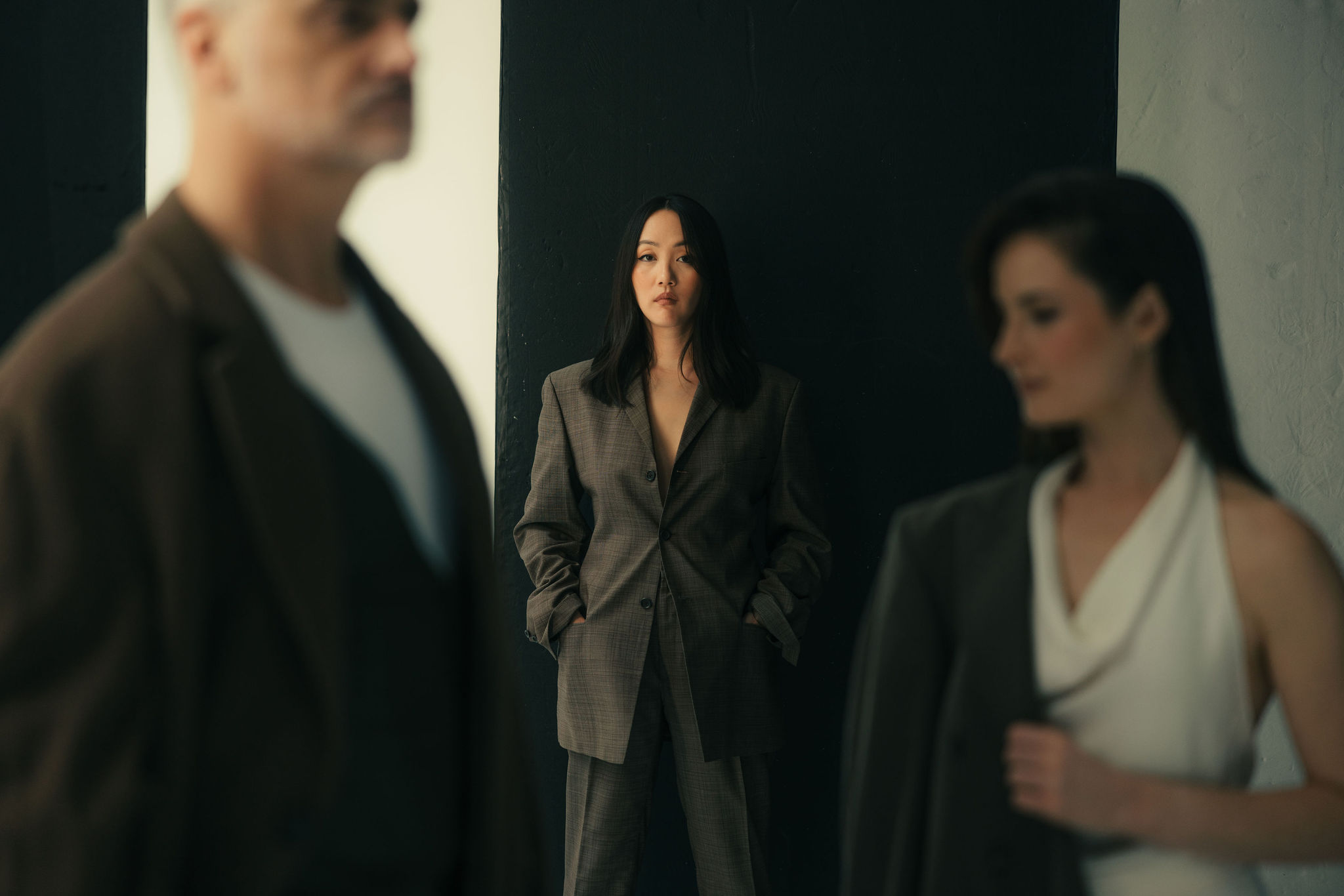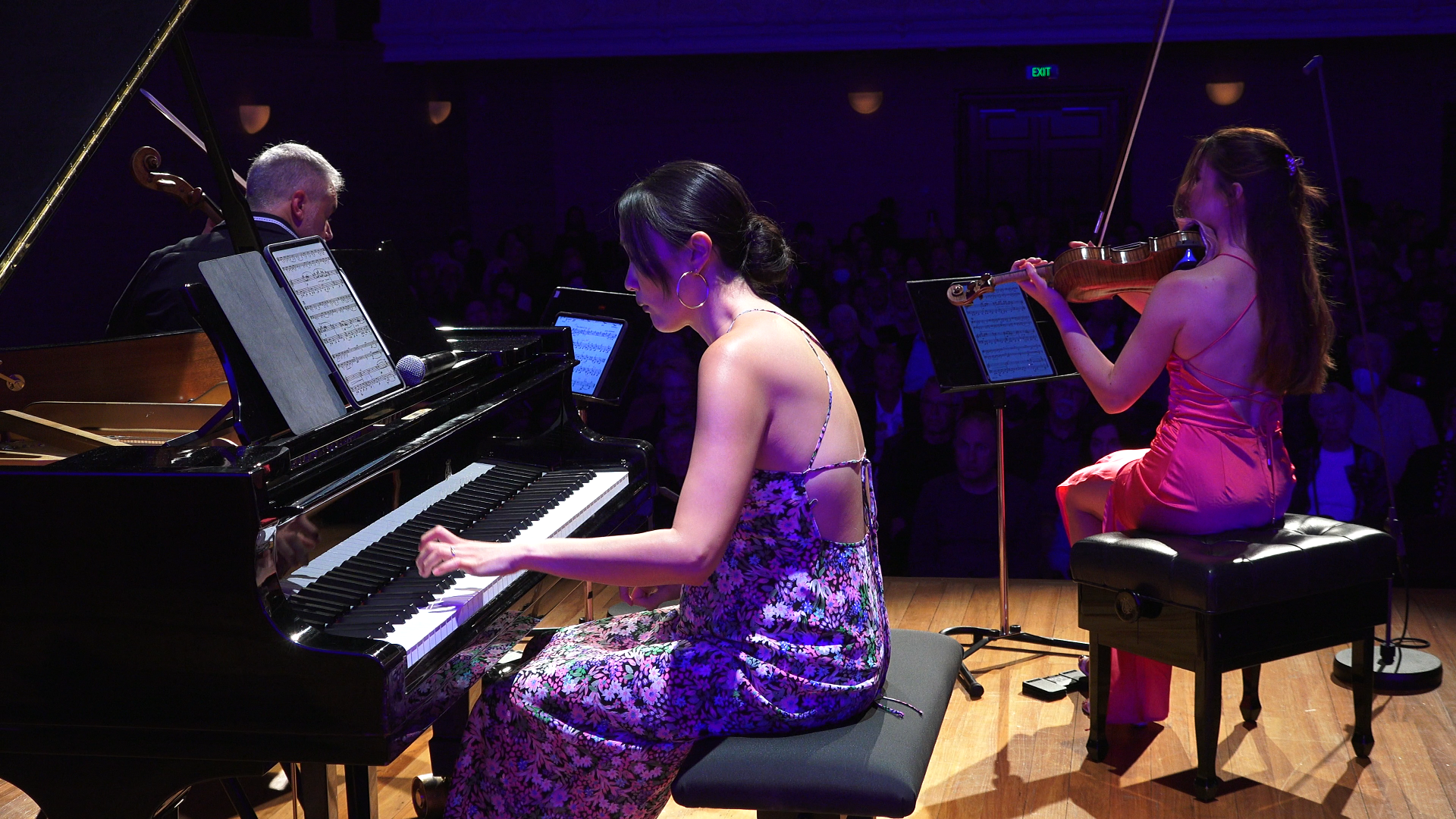It was an evening of perfect musical bliss.
Naturally, I expected nothing less when British clarinet virtuoso, Julian Bliss, teamed up with NZTrio for a programme of 20th and 21st century chamber music. . .
. . .In the 76 years since it was first performed in a bleak German prisoner-of-war camp, Olivier Messiaen’s 1940 Quartet For the End of Time has an undeserved reputation as an unapproachable musical monolith. Bliss and NZTrio together dispelled this myth with highly charged playing, which reflected the music’s ecstatic spirituality and profound beauty. It was an extraordinary performance, especially Ashley Brown’s extended cello solo in the fifth movement. I’ve rarely sensed an audience become so deeply absorbed. – and moved – by music. But it would be wrong to single out one player in a performance which on all levels – musically, artistically and emotionally – achieved such excellence.
Christopher Moore, The Christchurch Press – 31st July 2016
It was an evening of perfect musical bliss.
Naturally, I expected nothing less when British clarinet virtuoso, Julian Bliss, teamed up with the NZTrio – Justine Cormack (violin), Ashley Brown (cello) and Sarah Watkins, (piano) – for a programme of 20th and 21st century chamber music.
Bliss and Watkins opened proceedings in style with Claude Debussy’s Premiere Rhapsodie. Bliss drew out every subtle nuance of this sunny piece, tackling Debussy’s rapidly shifting tempos and lush musical textures with a panache which made the performance so enjoyable.
Having whetted the audience’s appetite, he was joined by Cormack for more Gallic charm in the form of Darius Milhaud’s Suite for Violin, Clarinet and Piano. This was a highly-polished interpretation of a work which is quintessentially French. But dismiss it as a trifling piece of musical fluff at your peril. Milhaud deserves respect – and he received it with a focused, cohesive and satisfying interpretation from three musicians who obviously enjoyed playing it together.
Then a shift of mood and pace, with New Zealand composer Ross Harris’s There May Be Light. Commissioned by Chamber Music New Zealand for Julian Bliss and the NZTrio, it presents an enigmatic musical world where delicate skeins of sound seamlessly float, connect and disconnect. Together, the four players confronted the work’s complexities and demanding techniques with total respect and sensitivity, deftly exploring Harris’s elusive musical moods in a way which highlighted the work’s elusive nature.
The final piece was perhaps the most challenging for the musicians and the audience. In the 76 years since it was first performed in a bleak German prisoner-of-war camp, Olivier Messiaen’s 1940 Quartet For the End of Time has an undeserved reputation as an unapproachable musical monolith. Bliss and NZTrio together dispelled this myth with highly charged playing, which reflected the music’s ecstatic spirituality and profound beauty. It was an extraordinary performance, especially Ashley Brown’s extended cello solo in the fifth movement. I’ve rarely sensed an audience become so deeply absorbed. – and moved – by music. But it would be wrong to single out one player in a performance which on all levels – musically, artistically and emotionally – achieved such excellence.
Christopher Moore, The Christchurch Press – 31st July 2016

